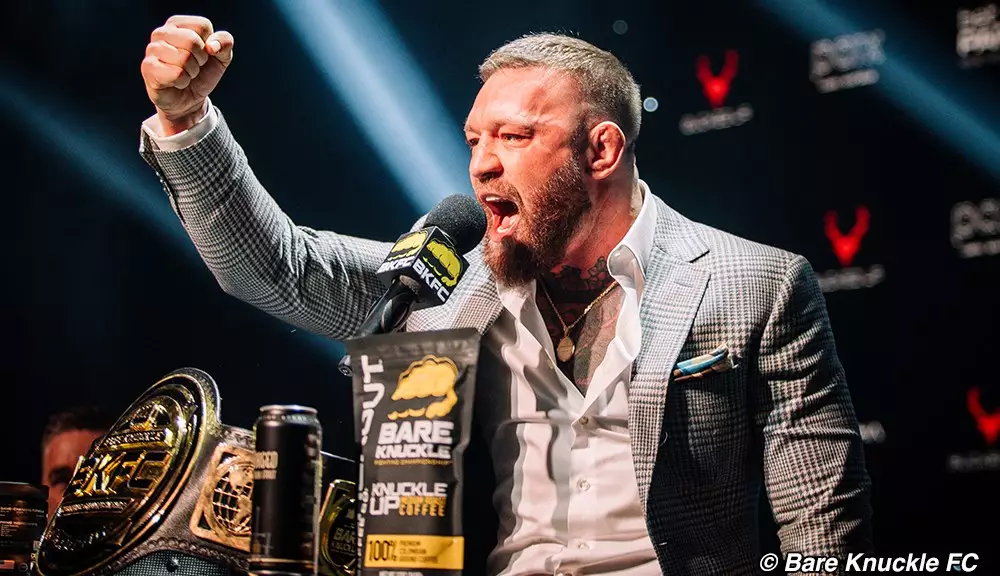The world of combat sports never seems to run out of surprises, and the latest buzz comes from the much-anticipated event, KnuckleMania 5. Following a headline-grabbing victory over Eddie Alvarez, Conor McGregor, the former double champion of the UFC, re-ignited excitement among fans with an unexpected encounter with Jeremy Stephens. This face-off evoked nostalgia not just for the fighters involved but also for the army of fans who remember McGregor’s iconic verbal jabs in the past, with the now-famous line “who da fook is that guy?” from their earlier interactions.
While this viral moment is a delight for fans and might stir speculation about future match-ups, the concrete reality of this event encapsulates much more than meets the eye. McGregor’s vested interest in Bare Knuckle Fighting Championship (BKFC) as both a fighter and an investor provides the fertile ground for discussions surrounding his transition to this emerging combat sport. However, there are contractual bindings that complicate this scenario and add layers to the current state of affairs.
At the heart of McGregor’s ambition lies a major obstacle: his existing contract with the UFC, which still has two fights pending. BKFC president Dave Feldman highlighted that while the intrigue of McGregor entering the bare-knuckle arena is compelling, significant barriers remain. To even entertain the idea, cooperation from the UFC would be paramount. Feldman noted the mutual understanding between BKFC and the UFC, expressing a tone of cautious optimism about the prospect, but acknowledging that a fight featuring McGregor may not be feasible unless the UFC deems it beneficial.
The relationship dynamics in the realm of combat sports can often be complex. Promoters like Feldman have opted for a more diplomatic approach to their dealings with Dana White and the UFC, contrasting with many historical rivals like Oscar De La Hoya or Bob Arum. Feldman’s acknowledgement of the ongoing growth of BKFC seems to suggest that while the UFC is not threatened by BKFC’s rise, they are not particularly inclined to facilitate its ascendance either.
Feldman’s words echo a sentiment familiar in entrepreneurial ventures: the balance of rivalries and collaborations. As BKFC continues to grow rapidly, the idea of integrating McGregor into their promotional future could serve as a catalyst, boosting their profile significantly. However, it also raises the question of whether the UFC would allow such a dynamic shift in the landscape of combat sports. If McGregor’s transition to BKFC were to happen, it may very well serve as a powerful visual confirmation of the growing popularity of bare-knuckle fighting.
The table is set for speculative talks. McGregor is vocal about his intention, often saying, “I have two fights left, and then we’re going to do it. I’m definitely fighting here.” His enthusiasm for the sport is palpable, and with Feldman anticipating matchups like McGregor facing off against the likes of Jeremy Stephens or Mike Perry, one can’t help but wonder about the potential pay-per-view earnings and fan excitement that could accompany such events.
However, until any sort of agreement is reached or the contractual maze is navigated, it remains a tantalizing dream for fans. McGregor’s flair for showmanship and Stephens’ gritty persona in the ring could indeed create an electrifying spectacle. Nonetheless, it’s essential to differentiate between fan desires and actual contractual obligations within the realm of professional sports.
The prospects of a McGregor-led showdown within BKFC are filled with equal parts excitement and uncertainty. The intertwining of his ambitions, contractual hindrances, and the promotional landscape creates a complex narrative that is perpetually intriguing—providing endless fodder for fans and analysts alike. The journey from a spontaneous viral moment to a potentially game-changing event could redefine not just McGregor’s legacy but also the trajectory of bare-knuckle fighting, marking an era of unprecedented possibilities in combat sports.

